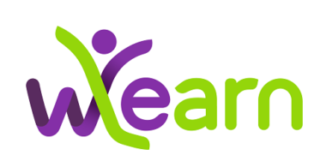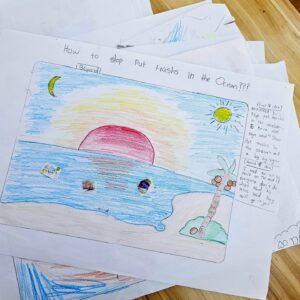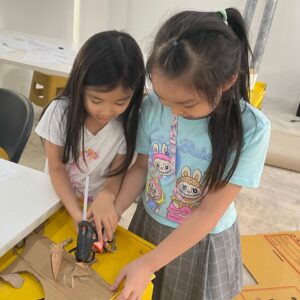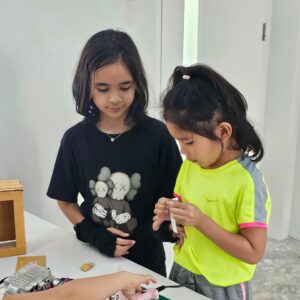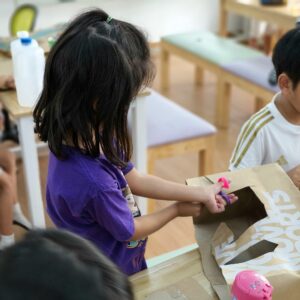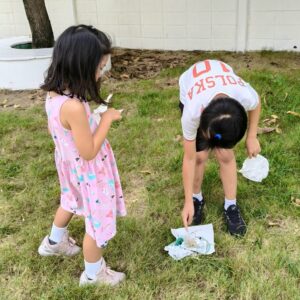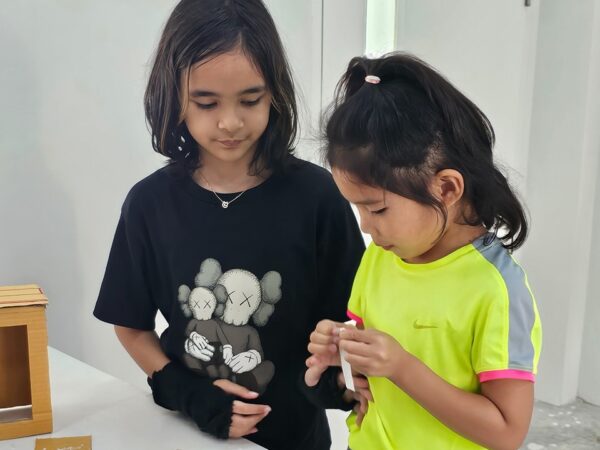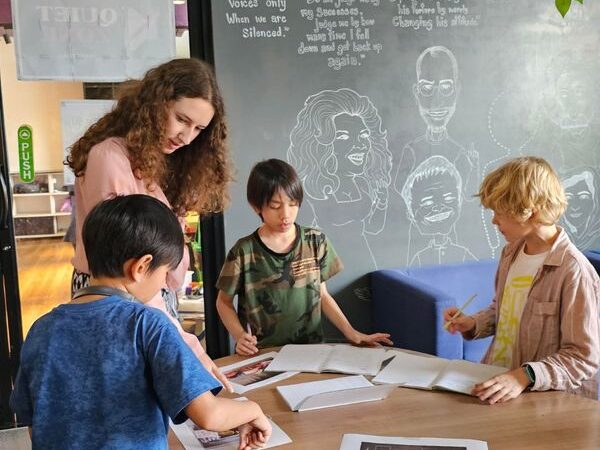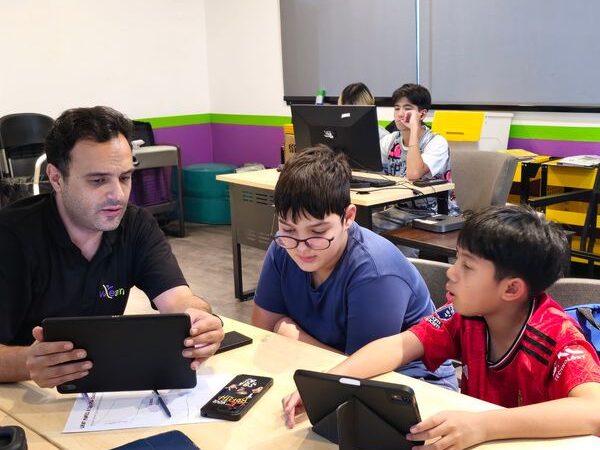Project-Based Learning (PBL) is a cornerstone of the WeLearn model, forming the third essential pillar that brings learning to life for our learners. At WeLearn, PBL is designed to engage, challenge, and inspire learners, guiding them to go beyond knowledge by fostering critical thinking, creativity, and problem-solving. It empowers learners to apply the skills and knowledge they’ve gained from our core online academic program and Future Skills courses to tackle real-world global challenges—challenges that they and future generations will face.
Project Based Learning
Aligned with the United Nations Sustainable Development Goals (SDGs), our PBL approach provides learners with the opportunity to work on projects that address pressing global issues like climate change, poverty, and inequality. By using SDGs as a foundation for PBL topics, we help learners understand the relevance of their work on a global scale, encouraging them to become responsible, compassionate leaders capable of making a positive impact on the world.
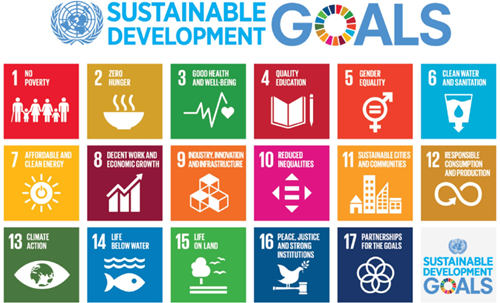
In addition, our PBL curriculum incorporates an innovative learning model by blending technology, STEM (Science, Technology, Engineering, and Mathematics), and real-world problem-solving. This unique approach empowers learners to develop and implement innovative solutions to global issues. By integrating these tools and disciplines, we ensure that learners are prepared for academic success and equipped with the skills to become creative problem-solvers and changemakers.
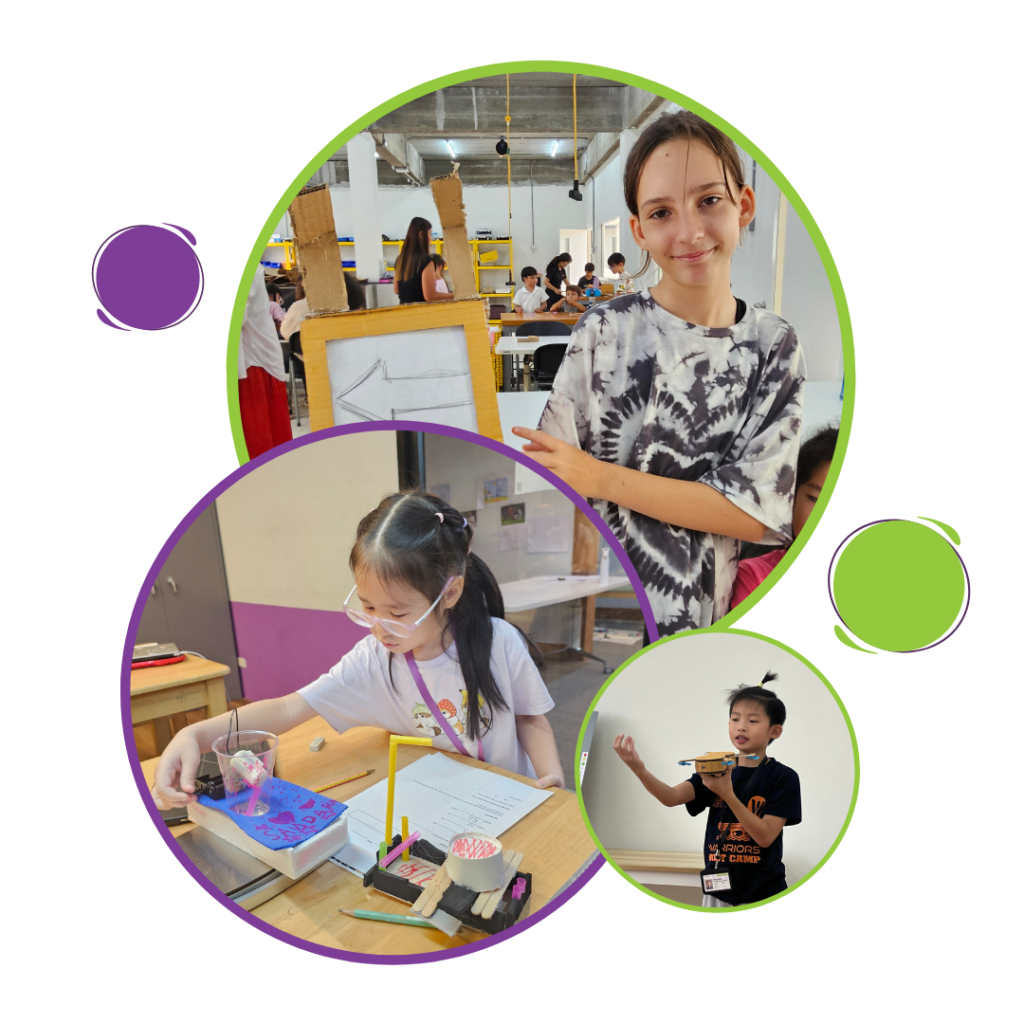
As education evolves globally, traditional schools are gradually incorporating more project-based learning into their curricula. This shift happens for one simple reason: students retain and understand far more when they can apply what they’ve learned to solve meaningful, real-world problems. However, the structure of conventional subject-based learning and the traditional focus of many schools often make it difficult to implement true project-based learning. At WeLearn, our flexible program and multidisciplinary approach—integrated from the very beginning—allow us to offer a robust PBL experience, empowering learners to become proficient in academic subjects while addressing the complex, multifaceted issues facing their generation.
Why WeLearn’s Project-Based Learning (PBL)?
- PBL engages learners in deep understanding and lifelong learning.
- Learners solve real-world problems and connect knowledge to practical applications.
- Learners develop essential future skills like collaboration, creativity, and critical thinking.
- Learners gain insights directly from experts and professionals in various fields.
- Learners improve decision-making skills by tackling complex challenges.
- Learning becomes meaningful and personally relevant for each learner.
- Learners are inspired to develop a love for lifelong learning.
- Learning integrates STEAM (Science, Technology, Engineering, Arts, Math) for innovation.
- The program aligns with US Common Core Standards for academic excellence.
- The program incorporates a fun, gamified approach to learning.
- Learners earn certifications and awards for their achievements.
- Learners build unique portfolios to support university applications.
Highlights of Our PBL Topics

Solving Human Problems with Intelligent Nature!

Reducing Plastics in the Ocean

AI Learning Buddy

Career Track Passion Projects

Designing an Eco-Friendly Future Transportation System

Designing Your Future Learning : Revolutionizing 21st Century Education
As education evolves globally, traditional schools are gradually incorporating more project-based learning into their curricula. This shift happens for one simple reason: students retain and understand far more when they can apply what they’ve learned to solve meaningful, real-world problems. However, the structure of conventional subject-based learning and the traditional focus of many schools often make it difficult to implement true project-based learning. At WeLearn, our flexible program and multidisciplinary approach—integrated from the very beginning—allow us to offer a robust PBL experience, empowering learners to become proficient in academic subjects while addressing the complex, multifaceted issues facing their generation.
